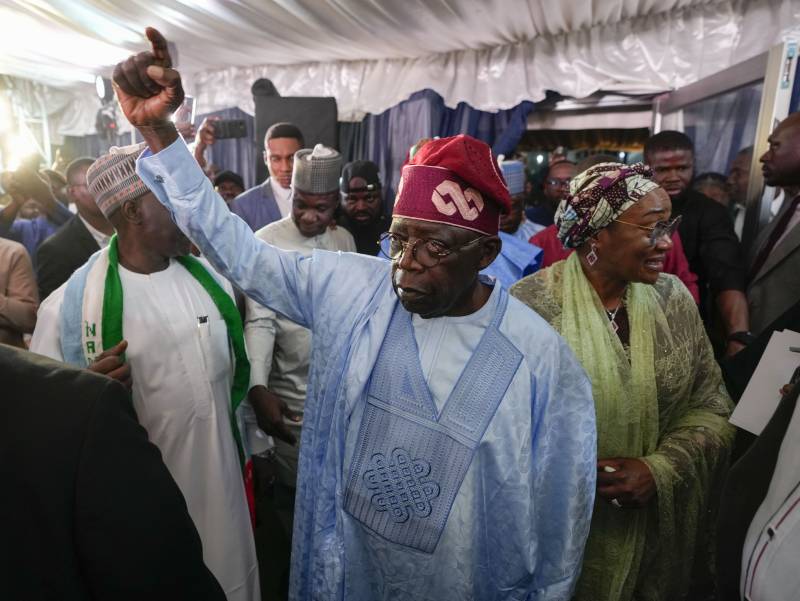Nigerian President Bola Ahmed Tinubu was sworn in as Nigeria's 16th president on May 29, 2023 and has not wasted time in implementing his economic plans for the country. In his first 30 days in office, he made some bold and controversial decisions that upended the current situation and provoked mixed reactions from Nigerians and the international community. In his inaugural speech on May 29, 2023, President Tinubu surprised analysts and observers by announcing the withdrawal of the fuel subsidy. The most important business decisions he has made so far:
Unification of the naira: In a notable political change, President Tinubu announced his government's decision to unify the exchange rate, replacing the old exchange rate system introduced under President Buhari's administration with the Central Bank of Nigeria (CBN ). It is hoped that this move will improve transparency, reduce confusion and boost confidence in the naira. The current exchange rate is determined by market forces, while the CBN only intervenes to keep it flexible.
Inauguration of the economic council: On June 14, 2023, President Tinubu established a new economic council to advise him on economic policy and exchange rate, in line with the statement of the Central Bank of Nigeria on the unity of the foreign exchange market, and - combine all parts in one window. The Council consists of 36 state governors, the CBN Governor, and other officials, with the aim of promoting cooperation between governments at all levels. The council is chaired by the vice president. The council is expected to provide the president with independent, evidence-based advice on how to achieve his vision of transforming Nigeria into a prosperous and sustainable economy.
Removal of CBN Governor: On June 9, 2023, President Tinubu ordered the suspension of the Governor of the Central Bank of Nigeria (CBN), Godwin Emefiele. It is believed that the reasons for the suspension of Emefiele are related to issues such as the management of the exchange rate of the naira, failed presidential approval, and policy errors such as foreign exchange rate errors and ineffective monetary policy. The central bank law did not clearly support the suspension of the CBN Governor pending an ongoing investigation, raising concerns about the central bank's independence. Mr. Emefiele was also directed to immediately hand over his office affairs to the Deputy Governor (Directorate of Operations), Mr. Folashodun Adebisi Shonubi, who will be the Governor of the Central Bank until the investigation and reforms are completed.
Managed float of the naira: On June 20, 2023, the Central Bank of Nigeria announced that the recent monetary policy decision implemented was not a free ship but a managed ship. At Bloomberg in Rabat, Morocco, Deputy Governor Kingsley Obiora disclosed that the Central Bank of Nigeria has recently clarified its monetary policy decision. The Deputy Governor also expressed caution in ascertaining whether the naira to dollar exchange rate has fallen, suggesting that it may still be too early to make such a decision. The decision to move to a floating exchange rate policy is consistent with the president's decision to pursue a market-based exchange rate policy.
Removal of fuel subsidy: President Tinubu canceled the fuel subsidy, which has been causing corruption, unemployment, and tax burden for decades. The money given to the government cost more than one trillion naira a year, while it benefits the rich and those who import money. Removing the money should free up resources for infrastructure, health, education, and social security programs, as well as encourage private investment in the oil industry's land sector. The price of petrol has more than doubled from an average of about N185/liter to an average of about N495/liter depending on the place of purchase.
Dissolution of governing boards of FG parastatals: On the 16th of June, President Bola Ahmed Tinubu approved the dissolution of the board of directors of all federal agencies, companies, institutions, and public institutions exercising his powers to issue laws for the public good. The dissolution shall not affect the boards, commissions, and councils listed in the third order, part 1, Section 153(i) of the 1999 Constitution of the Federal Republic of Nigeria as amended. The permanent secretaries were also mandated to act as the executive officers of the association.
Suspension of EFCC chair: On June 14, 2023, President Tinubu approved the dismissal of the Chairman of the Economic and Financial Crimes Commission (EFCC), Abdulrasheed Bawa, who was appointed by former President Buhari in February 2021. Mr. Bawa has been accused of being illegal, ineffective, and uncooperative in his fight against corruption. He was also directed to hand over his office immediately to the Executive Director of the Commission.
Appointment of national security adviser: On June 19, 2023, President Tinubu announced the appointment of Mallam Nuhu Ribadu as the National Security Adviser (NSA). He said he chose Ribadu because of his integrity, experience, and security skills. It is also expected to regulate all aspects of national security.
The signing of electricity, student loan, and data protection acts respectively, and the Retirement of service chiefs and appointment of new ones: On June 19, 2023, the Office of the Secretary to the Government of the Federation (SGF), announced the retirement of all heads of departments and their representatives.

President Tinubu




